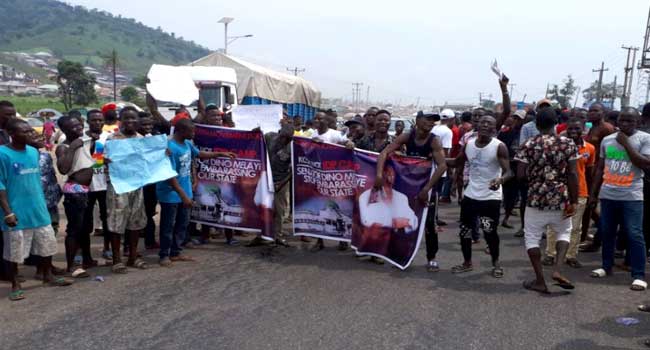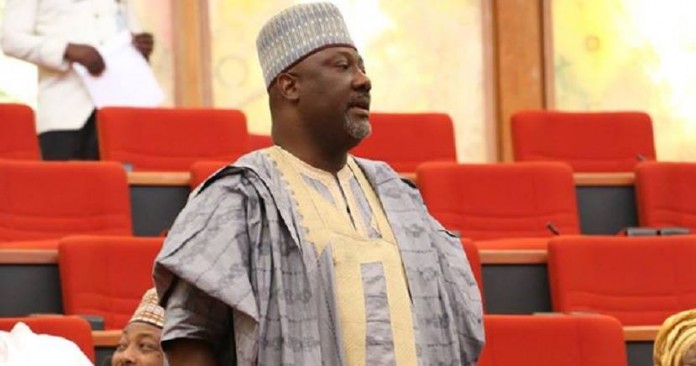
By Atâyi Babs
Very recently, the two chambers of the National Assembly passed a resolution, setting up a 74-member committee to revisit the constitutional amendment process which was abandoned by the last National Assembly following the surreptitious and illegal attempt by the failed Obasanjo administration to remain in office beyond its mandate. The committee comprises a senator and House member from each of the 36 states of the Federation and the Federal Capital Territory, Abuja.
In the next few days, the committee, which is chaired by the Deputy Senate President, Senator Ike Ekweremadu, will be inaugurated to commence action on the review of the 1999 Constitution which is widely adjudged to be anachronistic, with several incongruent and conflicting provisions. Given the structural weakness of the constitution, which has manifested in the last nine years that the constitution has been in operation, a review of the constitution to ensure that it satisfies the growing needs and aspirations of the Nigerian people, has become an urgent national imperative.
A national consensus already exists on the desirability of a constitutional review. The current effort, once more provides the nation another opportunity to get it right. The 74-member committee on whose auspices is trusted this enormous responsibility has a date to keep with history. On their shoulders lie a historic burden to give Nigeria a seamless and workable constitution that would reasonably address the fears of the minorities and the concerns of the majorities; a constitution that would endure with time.
The contentious issues are already known. And going by the account of the work of the Political Reform Conference moderated by Justice Niki Tobi, national consensus has been reached on some of these issues including the creation of an additional state in the South East, increased percentage to derivation principle in revenue allocation, removal of immunity clause, power rotation, devolution of power to the federating units, constitutional role for traditional institutions etc.
Other areas the committee will take a hard look at include local government administration, political representation in the National Assembly and the vexatious question of citizenship rights. Should the issue of the creation of local government areas be a matter under the Exclusive Legislative List or Concurrent Legislative List or Residual Legislative List? What should be the basis of representation in the National Assembly? Should representation be on the basis of the existing local governments and states that were arbitrarily created by the successive military administrations in the past? Who is a citizen under the constitution? What are the rights and obligations of the citizen under the law? Who is an indigene? Who is not? Should a Nigerian citizen be discriminated against on the basis of indigene ship?
Already, the Senate President has set a number of criteria, to wit: cognate experience and seniority in the Senate would be considered by the selection committee in the composition of the JCCR, the three senators from each state have, as a prelude to the intervention of the selection committee, been asked to agree among themselves on who should represent their states on the committee. Reports have it that a consensus was easily reached in many of the states, but in others, there has been bickering over the filling of their slots.
There are also indications that the leaderships of the senate and, in fact, the House of Representatives, attach great importance to the membership of the JCCR as part of an agenda to push through certain positions into the report that would encapsulate the proposed amendments for debate on the floors of the National Assembly.
It was learnt in the senate that some states where there is bickering, the development stemmed from alleged deliberate instigation by the leadership of its preferred choice against the consensus of the majority senators in the particular state. in Kogi, our dear State, where Senator Nicholas Ugbane is the most experienced senator, he should, ordinarily, represent the state on the JCCR. But Senators Smart Adeyemi and Otaru Ohize, according to reports, connived and pushed the selection of Adeyemi into the JCRR leaving Senator Ugbane helpless.
Even though the House of Representatives is yet to constitute theirs, there is no indication that Hon. Atai Aidoko who is the oldest Member of the House from Kogi State will eventually make it when it is finally constituted.
The foregoing leaves Igala land and all her aspirations for equitable and effective representation in the Nigerian Federalism in a very precarious and seemingly helpless situation. The all-important but vexatious issue of Local Government creation is very pivotal to the realisation of these aspirations as it is a common consensus that Igala land, with a bogus Nine LGA structure, still remains largely unrepresented in the national scheme of things as we are made to share equally all allocations/federal positions to our state with our less endowed neighbours.
Judging from the intense scheming and lobbying for membership of this constitutional review committee by NASS members, there is no gainsaying the inescapable fact that the JCCR membership will not only advertently confer serious privileges on its members but also on their constituencies as each constituency in Nigeria is looking forward to the committee to recommend favourable amendments like state creation, LGA creation, delineation, increased revenue allocation, e.t.c
It has thus become painfully manifest that Igala land has yet lost the battle for supremacy, competitive edge and relevance in the comity of tribes that make up our beleaguered federation with the wily-nily exclusion ( or is it outsmarting?) of our only Senator from his due privilege.
And with the monumental docility and legislative impotence munificently displayed by our three Representatives in the House (Atai Aidoko, Positive ihiabe & Napoleon Idachaba), one wont be surprised that they will all be excluded when the House finally sends it own list to the Senate because they will either be in Igala land attending one pointless launching, burial or merry-making, or in Lokoja lobbying Lugard House for one contract or pushing a godson for appointment in the state EXCO, or better still in one corner of Abuja (Specifically Romy Hotel, Garki II, Ibro Hotel, Wuse zone 5 or Rita Lori Hotel, Area 8, where ladies are made to entertain them in nudity) lavishing their legislative hours on inanities, profanities and other fantasies with telling consequences on Igala land’s future.
In line with my professional calling, i have had cause to be at one these debased joints where debauchery and foolery are elevated to Mephistophelean heights by our Honourable(?) Representatives. The height of wastage of Constituency Development funds in the midst of an astonishing absence of an organised thought process for Igala’s future put on rabid display by these men can best be imagined than seen as it has the capacity to instigate righteous and unrestrained indignation at our collective misery even among the proudest Igalas alive!
- Having said this much, the questions that we must all collectively find the answers to are these:
- How do we put Igala land on the front-burner of national discourse?
- How do we ensure a strong igala voice even in our National Assembly? (Ask any Public Affairs Commentator in Nigeria about Kogi’s representation in the National Assembly and you will be told that Senator Adeyemi Smart is so far the only Member of the National Assembly from Kogi state.
- How do we strengthen the legislative instruments of representation constitutionally granted to us as a people?
- How do we ensure that our proposals/desires for the creation of a minimum of 3 LGAs from the present Dekina LGA receives favourable attention from a JCCR that cannot boast of a Representative from the 9th largest tribe in the country?
- How do we make Senator Ugbane and Hon Positive Ihaibe realize that the on-going schism between them over their naked ambition to succeed Gov. Idris in 2012 is affecting the quality of representation they were elected to offer to Igala land?
- How do we impress it on Ugbane, Ihiabe, Aidoko and other pretender-contenders posturing for Lugard House come 2012 that the success of their ambition is dependent on the level of their contributions to the realisation of Igala aspirations by the JCCR?
- How do we ensure a proper delineation of constituencies to accurately represent our 54% population strength in Kogi State?
How do we make Igala land work again?
By Atâyi Babs


